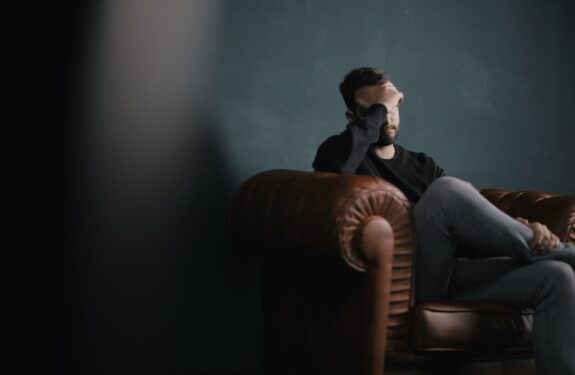
WINDSOR TERRACE — Even with light at the end of the COVID-19 tunnel in the form of vaccines, medical experts said the pandemic’s toll on mental health a year into the crisis is significant.
Since the first case in the state was confirmed on March 1, 2020, New Yorkers have lived through a year of mandatory mask-wearing, social distancing, and working remotely or losing their jobs. They have also had to avoid gathering with family and friends for parties, weddings, and other events.
“It has taken a toll,” said Dr. Joseph Laino, a psychologist and the assistant director of clinical operations at the Family Health Centers at NYU Langone-Sunset Terrace. “One of the hardest things is the lack of a sense of control over our lives.”
For some people, things might not necessarily get better as time goes on and COVID fades. “Acute reactions, like PTSD, happen later on,” said Dr. Abraham Taub, chairman of the Department of Psychiatry at Maimonides Medical Center.
“During an ongoing crisis, people are handling the crisis. People are amazingly resilient. It’s when the crisis ends that people have time to think, ‘What just happened to me?’ ” he said.
Maimonides has seen an increase in the number of people seeking help with mental health issues since the start of the pandemic. “And that’s a good thing,” Taub said. “I would be concerned if people weren’t knocking down our doors. That would mean people are suffering in silence.”
There have been more people seeking help from NYU Langone with emotional issues over the past year, Laino said. “We have seen an increase in the utilization of our services,” he said.
The increase is reflected citywide.
The Department of Health and ThriveNYC, the city program that works in partnership with 13 agencies and 200 nonprofits to provide help for people with mental health issues, jointly announced that the NYC Well helpline has seen significant usage during the pandemic.
Between Sept. 1 and Oct. 31, 2020, NYC Well responded to 57 percent more calls and texts than it had during the same period in 2019.
Statewide, the mental health picture is also troubling. A report released by the New York State Health Foundation revealed that 37 percent (more than a third) of residents reported feelings of depression and/or anxiety in October of 2020.
Now that we are a year into the pandemic, many people are starting to chafe at the restrictions.
“We have to be vigilant of COVID fatigue. Be alert of any signs of slipping back, like not wearing masks. We have to keep taking precautions to protect ourselves, even though there are now vaccines,” Laino said.
Father William G. Smith, pastor of St. Charles Borromeo Church, Brooklyn Heights, said he has noticed that some of his parishioners have been downcast as COVID has gone on.
He recommends prayer and keeping in frequent touch with people as ways to cope. Doing for others is also a good way of getting out of the doldrums. “We have a food pantry here. I started it as a way to interact with people,” he said.
Father Smith said it’s also important for people “not to be shy” about using online tools such as Zoom to get together.
Dr. Susan O’Doherty, a psychologist, said artists have had a particularly tough time.
“If they were making a living as an actor, that was gone because the theaters were closed. Many of them who would normally work in restaurants to make ends meet found that those jobs were gone. And the things people do to make themselves feel better – going to the movies or working out at the gym — were off-limits,” she said.
“This clientele has had an extra level of stress,” O’Doherty added.
Having a deep religious faith and taking part in activities like attending Mass have been found to boost mental health.
A Gallup poll released in 2020 showed 46 percent of adults over the age of 18 who regularly attended religious services rated their mental health as “excellent or good.” That’s an increase from the year before when it was 42 percent.
Therapists can play a valuable role in helping people cope, according to O’Doherty.
“People want to be listened to,” she said. “A therapist doesn’t so much advise, as listen and validate.”
